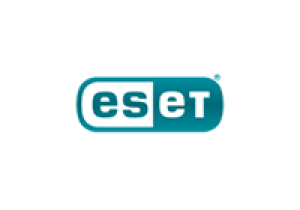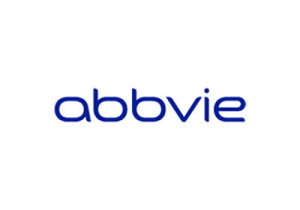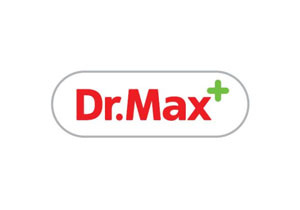How to Build a Modern Organization with Faster Analysis and Real-time Data Application out of the European Commission?

Bratislava, November 21, 2017 – Success in the world is always given by right decisions, this ability goes hand in hand with effective and meaningful work with huge amount of data that are not always available. European Commission is aware of that while facing economic competition of other world regions and at the same time accepting decisions solving impact of various social changes done inside and outside its borders. 30 000 headed giant is critically dependent on tools, data and expertise of its employees. Gertrud Ingestad, Director General of the Directorate General for Informatics in European Commission presented at ITAPA 2017 International Congress news from this area.
„Our goal is to become an organization built on data and fully utilize the analysis as a modernization driver,“ said Ingestad. Together with other EC Director Generals she founded so-called Strategic Group for Information and Knowledge Management. „When you imagine the fields of job market, economic growth, migration, investments, or single digital market – they all consist of huge amount of information and we have to be able to read these information, process and analyze them, so we can interpret what is happening and what actions and measurements must be taken.“ She believes it is important to process not only internal but external data as well. „The problem is that not all information we need are found in the Commission and the ones we have are often scattered and not connected; our ability to analyze and evaluate them is limited. We often lack technology, processes and also skills.“
Ingestad introduced several successful projects developed in European Commission. One of them is DORIS project, solution to analyze EU citizens‘ feedback for legislative initiatives of the commission during initial stages of the legislation process. „Just imagine - when consulting with the participating parties we can get up to half a million answers and reactions. It is obvious that without analytics we wouldn’t stand a chance to meaningfully evaluate them.“ She called the attention to the fact the tool is available also to member countries and its use is spreading quickly.
Another example is Victory project, where the Commission analyses EU data on IT job offers. Project is processing data from approximately 50 million records on job offers a year. This enables to evaluate various job market offers related to IT demands, such as regions with highest share of job offers, requirements and expectations of education, skills, salary, benefits and other useful information.
Social inclusion project, developed in cooperation with city of Madrid covers another area. Analyses of more than 60 thousand records from internal data on Madrid community managed to identify various groups dealing with concrete problems that by degrees potentially exclude them from the society. Other influencing factors were detected – African families with small children tend to get to poverty level most quickly, families with one parent can adapt most quickly. „We were able to detect causes and propose steps tailored for each of the groups to improve their social inclusion.“ said Ingestad.
Data analytics is young and even in the Commission itself it must be promoted to utilize developed apps, systems and proven technologies. „We created a so-called shared service catalogue for big data users. It is not just a catalogue of tools, but also of data and experts so we were able to offer consulting and expertise in what and how can be used.“ The catalogue will be launched beginning of 2018 and Gertrud Ingestad explained how it can significantly help for example during preparation of next program period. „We need to not only determine the next development areas but also to pause and think how we will evaluate this period; what data we will need, in what format, what tools will be used to collect and process data and what format should the outputs and results have.“
According to her, next step after the catalogue is development of data platform that will enable to fully utilize available data; it should be ready next year. Results will contribute to maximum data usage and better decision making and planning in EU.
Ingestad introduced several successful projects developed in European Commission. One of them is DORIS project, solution to analyze EU citizens‘ feedback for legislative initiatives of the commission during initial stages of the legislation process. „Just imagine - when consulting with the participating parties we can get up to half a million answers and reactions. It is obvious that without analytics we wouldn’t stand a chance to meaningfully evaluate them.“ She called the attention to the fact the tool is available also to member countries and its use is spreading quickly.
Another example is Victory project, where the Commission analyses EU data on IT job offers. Project is processing data from approximately 50 million records on job offers a year. This enables to evaluate various job market offers related to IT demands, such as regions with highest share of job offers, requirements and expectations of education, skills, salary, benefits and other useful information.
Social inclusion project, developed in cooperation with city of Madrid covers another area. Analyses of more than 60 thousand records from internal data on Madrid community managed to identify various groups dealing with concrete problems that by degrees potentially exclude them from the society. Other influencing factors were detected – African families with small children tend to get to poverty level most quickly, families with one parent can adapt most quickly. „We were able to detect causes and propose steps tailored for each of the groups to improve their social inclusion.“ said Ingestad.
Data analytics is young and even in the Commission itself it must be promoted to utilize developed apps, systems and proven technologies. „We created a so-called shared service catalogue for big data users. It is not just a catalogue of tools, but also of data and experts so we were able to offer consulting and expertise in what and how can be used.“ The catalogue will be launched beginning of 2018 and Gertrud Ingestad explained how it can significantly help for example during preparation of next program period. „We need to not only determine the next development areas but also to pause and think how we will evaluate this period; what data we will need, in what format, what tools will be used to collect and process data and what format should the outputs and results have.“
According to her, next step after the catalogue is development of data platform that will enable to fully utilize available data; it should be ready next year. Results will contribute to maximum data usage and better decision making and planning in EU.
Sign in to ITAPA Health&Care 2025



















